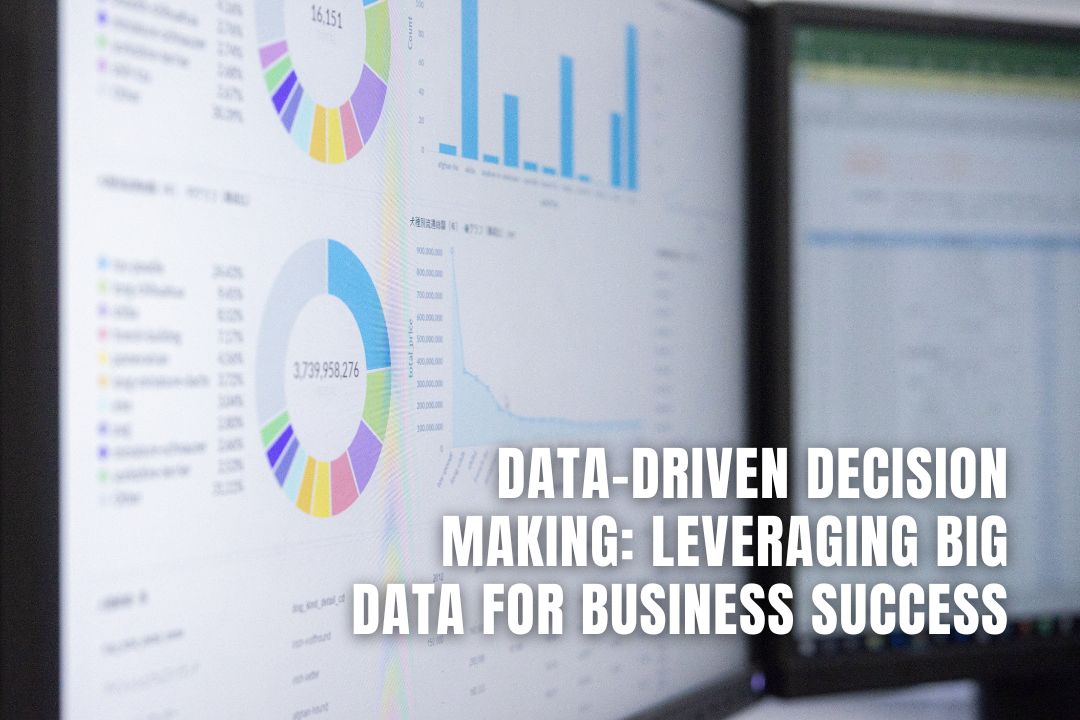
In today's fast-paced, ever-changing business world, getting decisions right is a critical issue. The development of digital data has given organisations the ability to collect more and more information at a much faster rate. However, the sheer volume and intensity of data can be overwhelming without the right tools and techniques. Introducing DDDM (Data-Driven Decision Making), which serves as a decision making process in the business world.
Data-driven decision making entails the systematic collection, analysis, and interpretation of data to inform strategic decisions within an organisation. Unlike traditional decision making methods based on intuition or experience, data-driven approaches rely on empirical evidence and statistical analysis. Through the utilisation of big data analytics technology, businesses can derive substantial advantages, including the identification of market trends, customer preferences, and operational efficiencies, resulting in more informed decisions and competitive advantage.
Talking about big data in general, consists of large and complex data sets that cannot be processed by the old data processing applications. It consists of structured data, which includes sales and inventory figures, and unstructured data, which includes customer reviews, social media posts, and sensor data. The rapid development of digital technologies has led to a situation where there is a large pile of big data that can be used by businesses to both solve problems and exploit opportunities.
On the other hand, a massive flow of information can be confusing for organisations trying to make sense of it. However, big data can greatly benefit organisations by increasing the effectiveness of customer understanding, improving business operations, and also facilitating the search for new growth prospects.
By leveraging advanced analytics techniques such as machine learning and predictive modelling, businesses can unlock the value hidden within their data and drive better decision making across all levels of the organisation, while independent software testing services ensure the reliability and accuracy of data analytics tools and algorithms, further enhancing the effectiveness of data-driven decision making.
The adoption of data-driven decision making offers several key benefits to organisations:
Decision making becomes more accurate and precise by gathering empirical evidence rather than relying on intuition or belief. By analysing big data, organisations can define the trends and correlations within their data and make more informed and confident decisions.
Data from big data is a great source of information about the audience and the competition, helping managers to get the best strategy more accurately. Organisations can now use historical data analytics as well as predictive data analytics to anticipate market fluctuations, identify emerging opportunities, and quickly adjust strategies.
Data-driven decision making allows us to delve deeper into the wants, needs, and lifestyles of consumers. By analysing customer data, companies can identify trends and customer segmentation, which helps them personalise their marketing efforts to better meet the interests of each specific customer.
Data analytics can help companies reduce operating costs by identifying problem areas in operations and improving business efficiency. Whether it is optimising supply chain logistics, troubleshooting production processes, or reducing downtime, data-driven insights can help companies operate more effectively and cost-efficiently.
Big data analytics enables companies to shorten the product development cycle and bring products and services to market quickly. By studying market trends and customer feedback in a synchronised manner, companies can delineate the existing and future opportunities and thus get a chance to update their product or service lines more frequently and thus win the battle in the marketplace.
To effectively leverage big data for business success, organisations must take a systematic approach to data-driven decision making:
Before embarking on data analysis, organisations must determine their focus and goals that align with business strategy. Any data-driven initiative whether it's to increase revenue, improve customer satisfaction, or optimise business processes defines the purpose as the need of the hour.
Once the goals are set, organisations need to know where the data is and find sources for that data that can give them insight into the problem at hand. This can include both internal data sources, such as sales volume and customer records, and external data sources, such as market research reports and social media data.
With data accessible, organisations can begin the process of analysing and interpreting it. This involves using advanced analytics techniques such as data mining, pattern recognition, and predictive modelling to uncover salient patterns, trends, and correlations and to implement actionable prescriptions to support decision making.
Armed with actionable data, organisations can make better decisions at every level of the business. Whether it is launching a new product, entering a new market, or optimising an existing business process, data-driven decision making can help organisations make decisions with confidence and clarity.
Data-driven decision making is an evolving process that requires continuous monitoring and improvement. By measuring key performance indicators (KPIs) and evaluating the results of decisions, organisations can identify areas for refining strategies and adapt to changes in the environment.
In today's data-driven era, embracing data-driven decision making is more than just a trend; it's a vital asset for companies striving to thrive. Leveraging big data analytics tools opens the door to invaluable insights into market dynamics and customer behaviour while streamlining internal operations. This strategic approach fosters smarter decision-making that ultimately drives business success. However, to fully realise the potential of data-driven decision making, organisations must invest in cutting-edge technology and cultivate a culture that values data-driven insights, supported by experts like DeviQA software QA company that ensure the reliability and accuracy of data analytics tools and processes, thereby increasing the effectiveness of data-driven decision making. By taking this systematic approach and committing to data-driven practices, organisations can navigate the ever-expanding data landscape with confidence. As data continues to grow in both volume and complexity, companies that prioritise data-driven decision making will undoubtedly have a competitive advantage in the marketplace.
Related Articles: